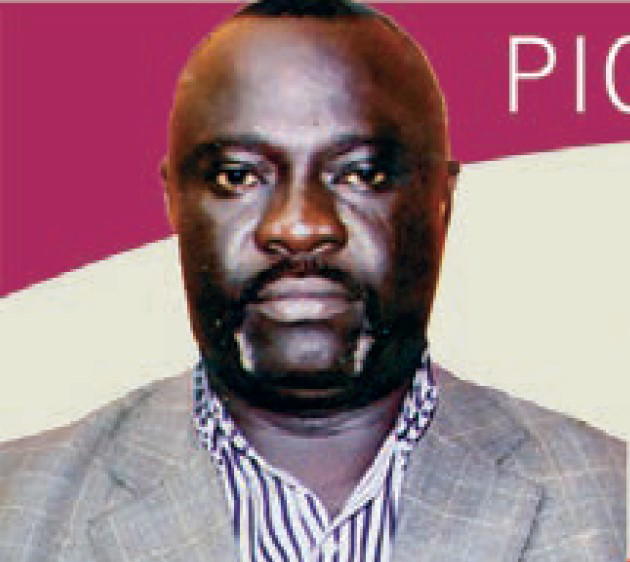African leaders and the renewed scramble for Africa, by Adekunle Adekoya

MANY readers might have read or heard about the initial scramble for Africa, as recorded by historians. It was a movement that culminated in a major political and economic exertion by the major and minor powers, largely pof European origin. The end result was colonisation. In a bid to continue to sustain the economic wealth of their countries, many European countries saw that they needed resources not immediately available in their territories to sustain the new ways of life that promises more wealth as the Industrial Revolution took off with inventions being rolled out one after the other and investors commercialising them.
To prevent a clash of major European powers as they tried to secure areas of infuence in Africa, the Iron Chancellor of Germany at the time, Otto von Bismarck convened the now historically famous Berlin Conference.
Online resource portal, Wikipedia, informs that the Berlin Conference of 1884–1885 was a meeting of 14 European powers that established rules for the European colonization of Africa and formalized each nation’s claims on African territories during the Scramble for Africa. Convened by German Chancellor Otto von Bismarck, it resulted in the signing of the General Act of Berlin, creating arbitrary borders for African regions that disregarded ethnic, cultural, and linguistic boundaries, leading to decades of exploitation and conflict. It is yet to end.
And while we are still battling the effects of a conference convened by a Bismarck more than 140 years ago, there is a renewed scramble for Africa. If you can’t see the pattern, you will not get the picture. The United States, United Kingdom, France, Russia, and China have, at different times in the last few years convened one Africa conference or the other in their countries, with African Heads of State and Governments being the special guests of honour. The last of such of these events is TICAD-9, the Ninth Tokyo International Conference on African Development, which held in Yokohama, Japan. As usual, many African heads of state and governments, including our own President Bola Ahmed Tinubu, attended.
As our leaders attend these conferences, I wonder what happened to their sense of history and geo-historic sense of resopnsibility. The average reader, by now, might have discerned where I’m headed with this piece, and this is not the first time I’m writing about it. Our people say if you don’t know where you’re going, you’ll at least remember where you were coming from. All these politicians leading one African government or the other must have read historical accounts of the so-called Berlin Conference, convened to decide the fate of Africa by Bismarck and other European statesmen who never set their feet on African soil till they left this side for the celestial thereafter.
They must also have discerned that the Berlin Conference was not convened to deliberate on the welfare of the peoples of the African continent, but to set ground rules for the exploitation of the continent’s resources and subjugation of its peoples economically and culturally. It therefore should impinge on their consciences, as individuals, and as a collective, to ponder the real raison d’etre for these conferences that they gleefully junket to at the slightest invitation.
If the conference was really about Africa, why couldn’t the sponsoring countries convene and hold the conference in an African capital? Why did all of them have to troop to Washington, D.C., London, Paris, Moscow and Beijing to attend a conference supposedly on Africa? And in my book, Japan raised the ante in terms of condescension. The conference was not good enough for its capital, Tokyo; it was hosted at Yokohama.
By the way, Yokohama is the second-largest city in Japan by population as well as by area, situated some 20km south-west of Tokyo and the country’s most populous municipality. It is the capital and most populous city in Kanagawa Prefecture, with a population of 3.7 million in 2023. It lies on Tokyo Bay, south of Tokyo, in the KantM region of the main island of Honshu. Yokohama is also the major economic, cultural, and commercial hub of the Greater Tokyo Area along the Keihin Industrial Zone.
You can imagine the huge resources committed by our president alone to attend the conference.
The approximate air distance between Yokohama, Japan, and Abuja is around 11,800 to 12,100 kilometres or 7,330 to 7,520 miles, though this can vary based on the specific flight path. Imagine the cost of flying an Airbus A330-243 presidential jet for that distance!
Beyond these surface concerns however lie the deeper considerations, that, in my book, keep eluding African heads of state and governments as they junket to attend these conferences time and again. The message should be clear to them: these summits are not convened to make things better for Africa or the African. They are strategy sessions to to keep Africa ensnared in the complex web of underdevelopment nurtured and cultured by a world economic order that is not in any way designed for the African. It is time our leaders woke up, put on their thinking caps, and worked hard to create economies for their countries that can be resilient enough to guarantee the well-being of Africans. This, of course does not rule out collaborations/interactions with peoples of other lands. Let these junkets stop and let our leaders work for us. TGIF.
The post African leaders and the renewed scramble for Africa, by Adekunle Adekoya appeared first on Vanguard News.







